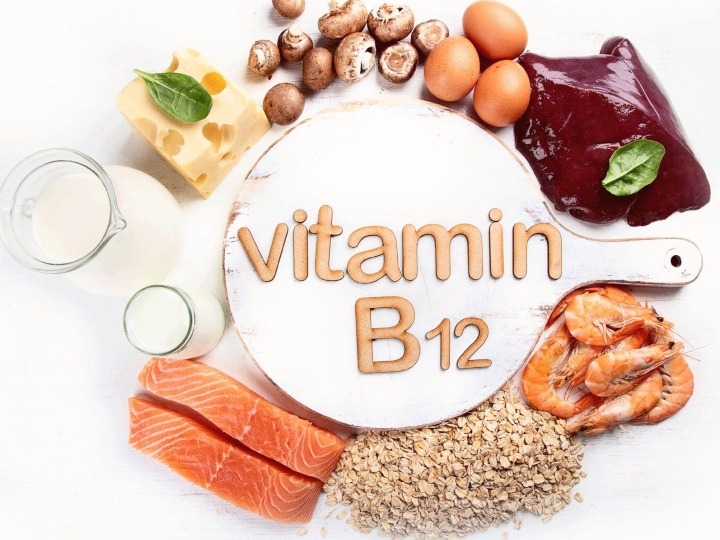Vitamin B12 is a water soluble vitamin essential for brain function, heart health, red blood cells & DNA formation. Vitamin B complex contains 8 B vitamins. Vitamin B12 is also called cobalamin. B vitamins are essential for sustaining health and wellness. These B vitamins directly influence energy levels, cognitive function & cell metabolism. Therefore, they are the building blocks of a healthy body.
What Does Vitamin B12 Do?
Vitamin B12 is essential to maintain the health of nerve tissue, brain function and red blood cells. Vitamin B12 deficiency occurs when there are low levels of the vitamin in the system and prolonged deficiency can lead to permanent neurological problems.
Unlike other vitamins, Vitamin B12 is a water soluble vitamin. It dissolves in water and passes through the bloodstream. Therefore, Vitamin B12 stays in the human body for long periods of time. This vitamin is the biggest and physically complex of all vitamins we consume. However, excess Vitamin B12 is passed through the system in the form of urine.
Sources Of Vitamin B12
Vitamin B12 is manufactured industrially by bacterial fermentation synthesis and exists naturally in animal products. Various animal products like fish, meat, eggs, and dairy are rich in Vitamin B12. Plant sources of Vitamin B12 are quite scarce. Some notable vitamin B12 rich foods are:
- Milk
- Cheese
- Yogurt
- Beef
- Pork
- Lamb
- Fish
- Eggs
- Varieties of soy milk and morning cereals
B12 supplements are also available in the form of pills, capsules, liquids and tablet forms. It’s also found in multivitamin products. If you’re not meeting your Vitamin B12 needs from your food sources, you can take supplements for the same in accordance with your doctors advice.
What Happens When Vitamin B12 Levels Drop?
The human body creates millions of red blood cells every minute. Without Vitamin B12, these cells will not be able to increase which causes the number of red blood cells to reduce. This eventually leads to anaemia.
Benefits Of Vitamin B12
#1 – Helps in the formation of red blood cells and prevents anaemia
Vitamin B12 deficiency inhibits the production of red blood cells and prevents them from growing correctly. Healthy red blood cells are ideally tiny and oval whereas deficiency of Vitamin B12 causes them to be bigger and oval.
This leads to Megaloblastic anaemia where the RBCs are bigger and have an irregular structure and they cannot migrate from the bone marrow. Therefore, the body ends up having fewer red blood cells to carry oxygen to your important organs resulting in anaemia.
#2 – Reduces the chances of macular degeneration
Macular degeneration is a visual loss that mainly affects central vision. Vitamin B12 deficiency may lead to age related macular degeneration.
#3 – May help with depression symptoms & mood
The impact of Vitamin B12 on mood is still quite uncertain. This Vitamin B12 is essential for the production & metabolism of serotonin, a neurotransmitter that regulates mood. Therefore deficiency of this vitamin reduces serotonin synthesis which may lead to depression.
#4 – May help prevent osteoporosis and supports bone health
Vitamin B12 deficiency could harm your bones. Reduced mineral density in bones can cause them to become brittle and fragile over time. This increases the risk of osteoporosis. In addition, low vitamin B12 levels leads to poor bone health and eventually leads to osteoporosis.
#5 – It may boost energy levels
Supplements containing vitamin B12 are the go-to solution for a burst of energy, as per some promotional materials. However, they alone don’t always give energy. All B vitamins play a crucial function in your body’s energy generation.
However, exhaustion or a lack of energy is one of the most prevalent early indicators of vitamin B12 insufficiency.
Conclusion:
Vitamin B12 is one of the least talked about vitamins and one of the most important. A water soluble vitamin found in a range of foods such as meat, fish & dairy products. It’s always better to get your vitamins and minerals from natural food sources. The only time you should think about taking supplements for the same is if you’re not getting the same from food. Make sure to check your Vitamin B12 levels and include its sources in your diet.




